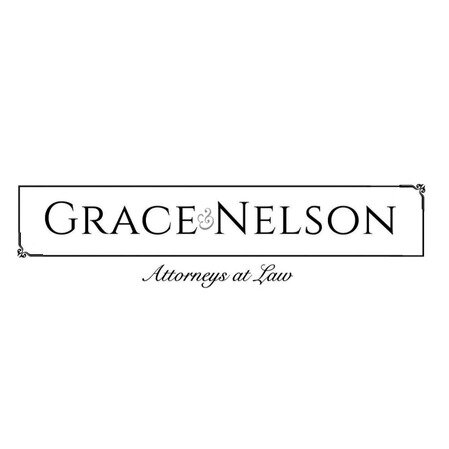Best Housing, Construction & Development Lawyers in Ecuador
Share your needs with us, get contacted by law firms.
Free. Takes 2 min.
Free Guide to Hiring a Real Estate Lawyer
Or refine your search by selecting a city:
List of the best lawyers in Ecuador
About Housing, Construction & Development Law in Ecuador
Housing, Construction, and Development Law in Ecuador governs a broad scope of activities related to the planning, construction, and management of residential, commercial, and infrastructure projects. This area of law covers urban planning, zoning regulations, building codes, property rights, and environmental regulations. The government aims to ensure sustainable urban development while addressing the housing needs of the population. Given the diverse geography of Ecuador, from coastal areas to the highland regions, construction projects must adhere to specific standards suitable to each setting, ensuring safety, quality, and environmental considerations.
Why You May Need a Lawyer
Engaging a lawyer specialized in Housing, Construction, and Development can be crucial for navigating the complex legal landscape in Ecuador. Common situations where you might require legal assistance include:
- Disputes over property rights and land ownership.
- Negotiating and drafting construction contracts.
- Ensuring compliance with local zoning laws and building codes.
- Handling environmental impact assessments and compliance.
- Resolving construction defects or delays.
- Obtaining necessary permits and licenses for construction projects.
- Dealing with landlord-tenant disputes.
Local Laws Overview
In Ecuador, several key legal aspects are particularly relevant to Housing, Construction, and Development:
- Constitutional Framework: The Ecuadorian Constitution provides a broad framework for property rights but also emphasizes the social function of property, promoting equitable access to housing.
- Construction Code: The Ecuadorian Construction Code sets mandatory standards for the design and construction of buildings, focusing on safety, accessibility, and sustainability.
- Zoning Laws: Municipalities have the authority to regulate land use through zoning laws, ensuring orderly urban development.
- Environmental Regulations: Projects must comply with environmental regulations to prevent harm to Ecuador’s diverse ecosystems, often requiring Environmental Impact Assessments (EIA).
- Tenancy Laws: Govern the rights and responsibilities of landlords and tenants, outlining contract terms, rent controls, and eviction procedures.
- Public Procurement Law: Applies to construction contracts involving government entities, emphasizing transparency and fair competition.
Frequently Asked Questions
What are the basic requirements for buying property in Ecuador?
Foreigners can purchase property in Ecuador with minimal restrictions. It is crucial to verify the title and ensure the property is free from liens or encumbrances. A notary must certify the property sale agreement, and property registration is essential.
How do zoning laws affect construction projects in Ecuador?
Zoning laws dictate land use and development intensity in specific areas. Projects must align with these regulations, obtaining necessary approvals from the local municipality to avoid legal issues and potential fines.
What should I consider when drafting a construction contract?
A construction contract should clearly define the scope of work, project timelines, payment terms, and penalty clauses for delays or breaches. It is wise to seek legal counsel to ensure the contract protects your interests and complies with Ecuadorian law.
How can I resolve a construction dispute in Ecuador?
Construction disputes can often be resolved through negotiation or mediation. Legal action may be necessary if a settlement cannot be reached. Having a detailed contract and records can strengthen your case in court.
What permits are necessary for new construction projects?
Construction permits vary by project type and location. Typically, you need a building permit, environmental permits, and in some cases, a historical preservation approval if the area is protected. Check with local authorities for specific requirements.
Are there financing options for housing development in Ecuador?
Yes, several financial institutions offer loans for housing development, often backed by government initiatives. Eligibility and terms can vary, so it’s important to explore different options based on your project’s specific needs.
What should I know about property taxes?
Property taxes in Ecuador are levied based on the property’s assessed value. They are generally low but vary by municipality. Property owners must stay current with taxes to avoid penalties or legal complications.
Can tenants challenge an eviction in Ecuador?
Tenants can challenge an eviction by demonstrating a legal reason for occupancy or pointing out procedural errors by the landlord. Legal counsel can aid in presenting a strong case if needed.
What are the legal responsibilities of homeowners associations (HOAs)?
HOAs manage common areas in residential complexes, enforce rules, and collect fees. They must operate transparently, maintain adequate records, and adhere to bylaws agreed upon by the residents.
How do I handle construction defect claims?
Address construction defects by first notifying the responsible parties to remedy the issue. Legal action may follow if they do not respond. Documenting defects and related communications is essential for legal proceedings.
Additional Resources
Several resources can assist those seeking legal advice in Housing, Construction, and Development in Ecuador:
- Ecuadorian Bar Association: A resource for finding qualified lawyers specializing in real estate and construction law.
- Ministry of Urban Development and Housing (MIDUVI): The main governmental body overseeing housing policies and regulations.
- Local Municipalities: Provide information on zoning, permits, and other local regulations affecting development projects.
- Chambers of Construction: Offer industry insights, support, and advocacy for construction professionals.
- Ecuadorian Environmental Ministry: Essential for understanding and complying with environmental regulations.
Next Steps
If you need legal assistance in the area of Housing, Construction, and Development, consider the following steps:
- Research and Identify Your Needs: Clearly define the legal assistance you require, whether it's contract drafting, dispute resolution, or permit acquisition.
- Find a Qualified Lawyer: Use resources like the Ecuadorian Bar Association to find attorneys specializing in your area of need, ensuring they have relevant experience and accreditation.
- Prepare Your Documentation: Gather all relevant documents related to your case, such as contracts, correspondence, permits, and any legal notices.
- Schedule a Consultation: Meet with potential lawyers to discuss your case, their approach, and potential outcomes, clarifying any doubts about fees and timelines.
- Engage Legal Services: Once you find a lawyer you trust, formally engage their services to begin addressing your legal needs.
Being informed and proactive about the legal aspects can significantly impact the success of your housing, construction, or development endeavors in Ecuador.
Lawzana helps you find the best lawyers and law firms in Ecuador through a curated and pre-screened list of qualified legal professionals. Our platform offers rankings and detailed profiles of attorneys and law firms, allowing you to compare based on practice areas, including Housing, Construction & Development, experience, and client feedback.
Each profile includes a description of the firm's areas of practice, client reviews, team members and partners, year of establishment, spoken languages, office locations, contact information, social media presence, and any published articles or resources. Most firms on our platform speak English and are experienced in both local and international legal matters.
Get a quote from top-rated law firms in Ecuador — quickly, securely, and without unnecessary hassle.
Disclaimer:
The information provided on this page is for general informational purposes only and does not constitute legal advice. While we strive to ensure the accuracy and relevance of the content, legal information may change over time, and interpretations of the law can vary. You should always consult with a qualified legal professional for advice specific to your situation.
We disclaim all liability for actions taken or not taken based on the content of this page. If you believe any information is incorrect or outdated, please contact us, and we will review and update it where appropriate.
Browse housing, construction & development law firms by city in Ecuador
Refine your search by selecting a city.














